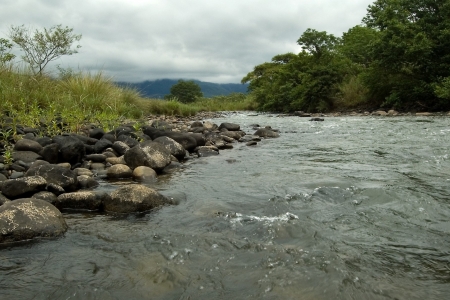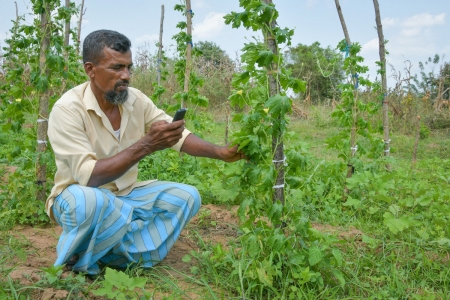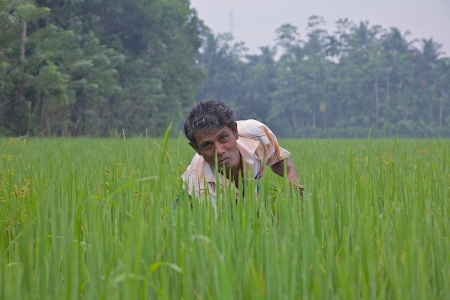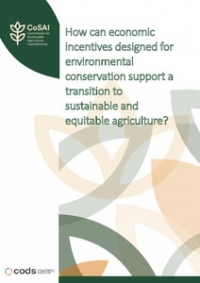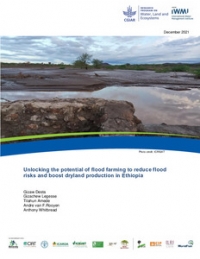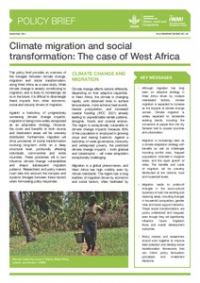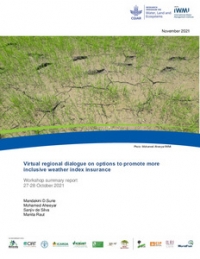Over the past two decades, approximately 20 percent of the Earth's cultivated surfaces have become less productive. According to the latest report from the United Nations Food and Agriculture Organization (FAO), land use-changes and management practices are in part impacting this decline. Now, a study by an international research team of more than one hundred researchers coordinated by the University of Würzburg and Eurac Research, reveals that agricultural fields with greater biodiversity are better protected from harmful insects, promote pollination and produce higher yields.
Ecologists and biologists compared data of about 1,500 agricultural fields around the world: from corn fields in the American plains to oilseed rape fields in southern Sweden, coffee plantations in India, mango plantations in South Africa and cereal crops in the Alps. They analyzed two ecosystem services (i.e., processes regulated by nature that are beneficial and free for humans): the pollination service provided by wild insects and biological pest control service, which is the ability of an environment to use predatory arthropods present in the ecosystem to defend itself from harmful insects.
In heterogeneous landscapes where the variation of crops, hedges, trees and meadows is greater, wild pollinators and "beneficial" insects are more abundant and diversified. Not only do pollination and biological control increase, so does the crop yield. On the other hand, monocultures are the cause of roughly a third of the negative effects on pollination that result from landscape simplification (measured by loss of ‘pollinator richness’). This effect is even greater with the control of harmful insects, where loss of ‘natural enemy richness’ represents 50 per cent of the total consequences of landscape simplification.
"Our study shows that biodiversity is essential to ensure the provision of ecosystem services and to maintain a high and stable agricultural production," explains Matteo Dainese, Senior Researcher and biologist at Eurac Research and first author of the study. "For example, a farmer can depend less on pesticides to get rid of harmful insects if natural biological controls are increased through higher agricultural biodiversity.” The researchers recommend protecting environments whose health is maintained through biodiversity, and to diversify crops and landscapes as much as possible.
"Under future conditions with ongoing global change and more frequent extreme climate events, the value of farmland biodiversity ensuring resilience against environmental disturbances will become even more important," says animal ecologist Ingolf Steffan-Dewenter from the Department of Animal Ecology and Tropical Biology at the University of Würzburg, the initiator of the study within the EU project ‘Liberation’. "Our study provides strong empirical support for the potential benefits of new pathways to sustainable agriculture that aim to reconcile the protection of biodiversity and the production of food for increasing human populations."
The CGIAR Research Program on Water, Land and Ecosystems (WLE) contributed to this research through Wei Zhang, Senior Research Fellow at the International Food Policy Research Institute (IFPRI).
Funding for the study came from the collaborative projects EU-FP7 LIBERATION (311781) and Biodiversa-FACCE ECODEAL (PCIN-2014–048).
The study has just been published in Science Advances.
Original post was written by Matteo Dainese, Eurac.
The media coverage received by the study, so far, can be found at the following sources:
- Biodiversity improves crop production - EurekAlert!
- Nature Improves Crop Production - Nature.org
- Cuantos más insectos, mejores cosechas - elpais.com
- Study: Biodiversity improves crop production - phys.org
- Artenvielfalt nutzt der Landwirtschaft - idw-online.de
- Biodiversity boosts crop pollinators and pest controllers, study finds - mongabay.com
- Without a crucial ingredient, more bees won’t help the world’s farms - inverse.com




